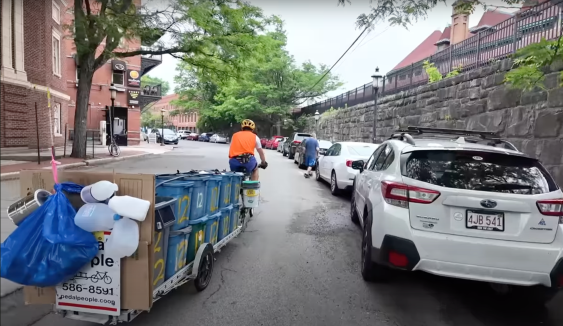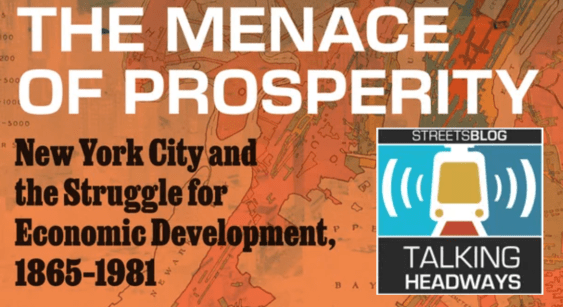This weekend the new musical about Robert Moses, New York's 20th century "master builder," will debut in Lower Manhattan. No one built with the intensity of Moses, whose fixation on moving automobiles came to define his legacy and influence a whole generation of urban decision makers.
Now, it seems, the tide is turning. A few months ago, Esquire Magazine ran a story about New York City Transportation Commissioner Janette Sadik-Kahn, drawing a parallel between her impact and Moses's. But rather than building massive highway projects, Sadik-Kahn has been adding bike lanes and bus lanes and clearing cars from places like Times Square to create space for pedestrians.
Will there be a whole new generation of leaders committed to returning cities to people? Streetsblog Network member Walkable Dallas-Fort Worth looks abroad to the example of Lee Myung-Bak, who achieved national political prominence in South Korea by transforming the heart of his city:
It is amazing what can happen when you listen to the people. In one case, the former mayor of Seoul, South Korea made his career pretty much entirely by making his city more livable for its citizens. That's the kind of popularity that carries mayors into presidencies, as it did for Lee Myung-Bak, now the President of South Korea.
The two biggest legacies he left Seoul with were the Seoul Forest, a large urban park on land that was rendered rather useless by overbuilding of roads/highways, and the Cheonggyecheon, a stream-turned freeway, returned to public park and accessible water course...
Today, 90,000 pedestrians go to the new park in the center of Seoul, each day. 50 million have visited the new riverfront park in five years. It has become the center of Seoul, and by extension all of South Korea.
Elsewhere on the Network today: Rebuilding Place in the Urban Space reflects on the importance of Metropolitan Planning Organizations to transportation reform and wonders if metro D.C.'s position between two states will have a negative impact on its evolution. And The FABB blog comments on Alexandria, Virginia's wavering between a Complete Streets "policy" -- which can be ignored -- and a stronger ordinance.






